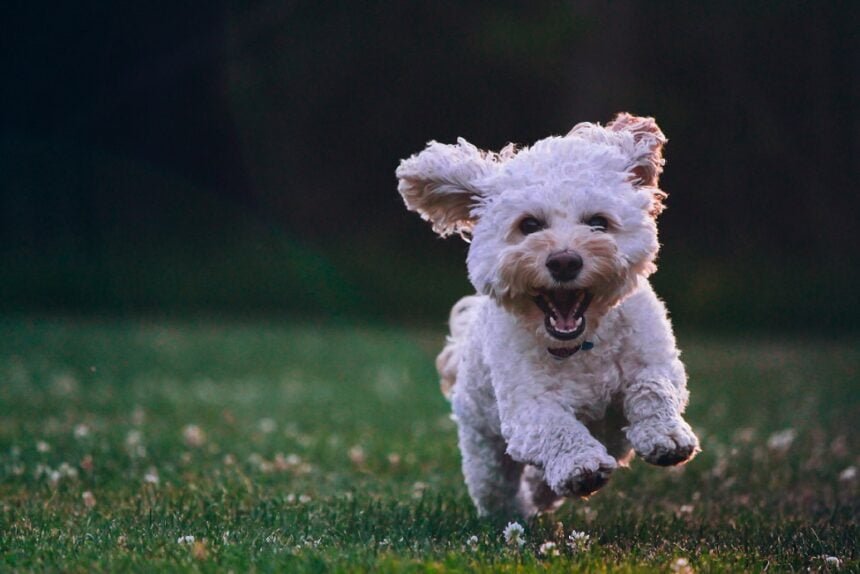Playtime is a critical period in a young dog’s life that should not be underestimated. Puppy playtime is not merely a form of entertainment but serves as an essential component of their overall development. During puppyhood, play is a primary means of exploration and learning about the world. Engaging in puppy playtime helps puppies build physical skills, develop social interactions, and stimulate cognitive functions. Puppies are naturally curious and playful creatures, and providing them with appropriate playtime experiences sets the stage for a well-adjusted and balanced adult dog.
Understanding the Importance and Benefits
The play behavior in puppies is deeply rooted in both behavioral and neurological aspects. Play activates certain regions in the brain, particularly those associated with reward and pleasure, resulting in the release of neurotransmitters like endorphins, dopamine, and oxytocin. These chemicals create positive associations with play activities and reinforce the behavior. Additionally, play stimulates the growth of neural connections in the brain, contributing to better cognitive development and problem-solving abilities. Furthermore, engaging in social play with littermates and other dogs helps puppies learn appropriate social cues and develop emotional intelligence.
Types of Play for Puppies

Puppies engage in different types of play, each serving unique purposes in their development:
- Social Play: This involves interactions with other puppies, adult dogs, and humans. It helps them understand body language, practice bite inhibition, and learn essential social skills necessary for proper communication. Through social play, puppies establish hierarchies within their playgroups, which mimics pack dynamics seen in their wild ancestors.
- Solitary Play: During solitary play, puppies explore their environment and interact with toys or objects on their own. This type of play encourages independence, fosters creativity, and helps them build self-confidence. Providing a variety of safe toys and objects stimulates their senses and keeps them mentally engaged.
- Object-Oriented Play: Puppies often play with toys and objects, which aids in the development of their physical coordination and problem-solving skills. It satisfies their natural instincts to chew and explore their surroundings. Providing appropriate chew toys is crucial during this phase to prevent them from damaging household items.
Socialization through Play
Puppy playtime is a vital period for socialization, which is the process of exposing puppies to various people, animals, environments, and experiences. Through play, puppies learn how to interact appropriately with other dogs and humans, reducing the likelihood of fear or aggression towards unfamiliar situations later in life. Positive experiences during playtime contribute to the formation of a well-adjusted, friendly, and confident adult dog.
Properly supervised play with other dogs and exposure to different environments during puppyhood create positive associations, reducing the risk of developing behavioral issues like fear-based aggression or anxiety. Early and positive socialization is crucial for a puppy’s overall emotional and behavioral well-being.
Play as a Learning Mechanism
Play is a fundamental means through which puppies learn and understand the world around them. During play, they mimic adult behaviors like hunting, chasing, and wrestling, which prepares them for their roles as adult dogs. Social play with littermates and other dogs teaches them valuable communication skills, like body language and vocal cues, that are essential for successful interactions in their social groups.
Object-oriented play, such as playing with puzzle toys, helps puppies develop problem-solving abilities and spatial awareness. It challenges their minds and enhances cognitive development. Play also contributes to the development of motor skills and physical coordination, as they learn to run, jump, and navigate their environment.
Physical Benefits of Play
Engaging in playtime activities offers numerous physical benefits for puppies. Regular play helps them build and strengthen their muscles, improving overall physical fitness. Running, jumping, and chasing toys contribute to cardiovascular health and endurance.
Additionally, play helps prevent obesity in puppies. Obesity can lead to various health issues, such as joint problems, diabetes, and heart disease. Keeping puppies active and providing opportunities for play helps them maintain a healthy weight and reduces the risk of obesity-related health concerns.
It’s essential to match the intensity and duration of playtime to the puppy’s age, breed, and individual needs. Puppies have boundless energy, but they also require adequate rest and sleep to support their growth and development.
Emotional Well-being and Play
Playtime plays a crucial role in a puppy’s emotional development. It provides an outlet for their natural energy, reducing stress and anxiety. Puppies who engage in regular play are generally happier and less likely to develop destructive behaviors that result from boredom or pent-up energy.

Play also fosters emotional resilience, helping puppies cope with new and potentially challenging situations. Positive play experiences create positive associations with people, places, and activities, making them more adaptable and confident in their interactions with the world.
Furthermore, play with humans, such as interactive games and training exercises, strengthens the bond between the puppy and their owner. This bond is essential for a trusting and cooperative relationship, facilitating effective training and communication.
Bonding with Humans through Play
Playtime offers a unique opportunity for puppies to bond with their human owners. Interactive play, such as fetch, tug-of-war, or hide-and-seek, strengthens the emotional connection between the puppy and their caregiver. The joy and positive experiences shared during play create a sense of trust and affection.
Additionally, incorporating play into training sessions can be highly effective. Using play as a reward for desired behaviors reinforces positive associations with learning, making training enjoyable for both the puppy and the owner. This approach also helps build the puppy’s motivation to learn and cooperate during training exercises.
Supervised vs. Unsupervised Play
While playtime is crucial for a puppy’s development, it is essential to ensure their safety during play. Puppies can be prone to engaging in rough play or play that escalates into aggressive behavior if not properly monitored. Therefore, play should be supervised, especially when introducing puppies to new playmates or environments.
Supervised play allows owners to intervene if play becomes too intense or if any inappropriate behavior arises. It also helps to prevent accidents or injuries that may occur during play. While unsupervised play is suitable for independent playtime with toys or self-entertainment, interactions with other dogs or humans should be monitored until the puppy has developed appropriate social skills.
Integrating Play into Training
Play and training go hand in hand when it comes to a puppy’s development. Incorporating play into training sessions can be a highly effective way to reinforce positive behaviors. Utilizing play as a reward for following commands or displaying good manners enhances the puppy’s motivation to learn and encourages cooperation.
For example, using a favorite toy or treats during training sessions can make learning fun and engaging for the puppy. Short, frequent training sessions that include play breaks can help keep the puppy focused and prevent them from becoming overwhelmed or disinterested.
Age-Specific Playtime Considerations
As puppies grow and develop, their playtime needs and preferences change. Younger puppies may have bursts of energy and require more interactive play to satisfy their curiosity and build essential skills. On the other hand, older puppies may have longer attention spans and enjoy more complex play activities.
Age-specific playtime considerations also involve understanding the physical limitations of young puppies, such as not overexerting them or subjecting them to high-impact activities that may be harmful to their growing bodies. Tailoring playtime to match the puppy’s age and developmental stage ensures a safe and enjoyable experience for them.
Potential Behavioral Issues and Play
While play is vital for a puppy’s development, it is essential to be mindful of any potential behavioral issues that may arise during playtime. For instance, some puppies may display possessive behavior over toys, which can lead to resource guarding if not addressed appropriately. Observing the puppy’s behavior during play can help identify any signs of overstimulation or aggression.
Addressing behavioral issues promptly and using positive reinforcement techniques can help modify unwanted behavior during playtime. Consulting with a professional dog trainer or behaviorist may be necessary in more complex cases to ensure the puppy’s behavioral development remains on a positive trajectory.
Playtime Safety and Precautions
Safety should always be a top priority during puppy playtime. Providing a safe play environment includes removing any potential hazards or toxic substances from the area where the puppy plays. It’s crucial to select toys that are age-appropriate and free of small parts that the puppy might swallow.
Additionally, monitoring play with other dogs helps prevent injuries and ensures that interactions remain positive and friendly. Puppies should be gradually introduced to new playmates, and play sessions should be kept short initially to avoid overwhelming them.
Making the Most of Puppy Playtime
Maximizing the benefits of puppy playtime involves creating a structured play schedule that incorporates various types of play and interactions. Providing a variety of toys and play experiences keeps the puppy mentally and physically engaged.
Playtime should be a positive and enjoyable experience for both the puppy and the owner. Regularly setting aside dedicated playtime sessions strengthens the bond between the puppy and their caregiver while ensuring that the puppy’s developmental needs are met.
In conclusion, understanding the importance of play in a young dog’s development is crucial for providing them with a well-rounded and emotionally balanced life. Play contributes significantly to their physical, mental, and emotional well-being, fostering positive behaviors and social skills that will carry into adulthood. With proper supervision, age-appropriate activities, and a focus on positive reinforcement, puppy playtime can be a rewarding and joyful experience for both the puppy and their human companion.







